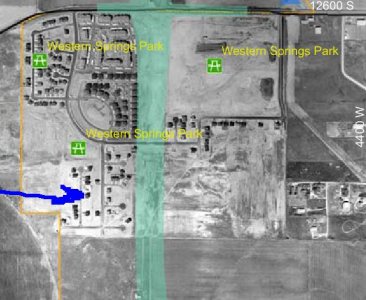nkb said:
Just to clarify my earlier post:
A proposal for a constitutional amendment has passed committee in both the Texas House and Senate, and is expected to pass, since the majority of lawmakers have signed on as sponsors.
That was quick.
Since this ruling was decided by the United States Supreme Court, I assume you are referring to an amendment to the United States Constitution. Such an amendment becomes law only after passage by the legislatures of three fourths of the states.
Given that this ruling just happened so recently, I would have expected it to take longer than that just to draft wording of an amendment in consultation with a bunch of other states, before actually passing it anywhere.
nkb said:
And, what if I recently made improvements to my house? I just spent $40K on putting in a nice pool, and $10K on landscaping. Maybe I spent $15K on hardwood floors. From my experience (at least in Texas), these upgrades very seldom cause a significant increase in the house value, definitely nowhere near the amount I spent.
Actually, home improvements (done with reasonable taste

and consistent with the value of the home and others in the neighborhood) nearly
always cause a significant increase in the house value, and often the increase represents most of the amount spent. In certain circumstances, some can even increase the house value by more than the amount spent.
According to Remodeling Magazine as reported on the
Quicken website, here are the top home improvements in terms of one year return on investment, and the average amount spent:
Minor kitchen remodel 88% $8,655
Second-story addition 83% $73,553
Bathroom remodel 81% $9,135
Bathroom addition 81% $13,918
Family room addition 75% $30,960
Major kitchen remodel 71% $31,090
Deck 55% $8,022
Granted, the improvements you mentioned are not the ones that give you the highest rate of return. But they
do increase market value significantly.
Also, as Dan points out, these cases take place over quite a number of years, publicly, before properties are actually purchased under eminent domain. If you knew that a significant possibility of an eminent domain sale existed, it would be foolish of you to spend money on a major home improvement, especially of the kind that increases market value by a small percentage of the amount spent.
nkb said:
How do I get compensated for that?
You get fair market value of the house in its condition when sold, which means any improvements are taken into account. Not that you would get the entire amount you spent, but it's taken into account.
nkb said:
What if I really do not want to move?
This is the key issue.
nkb said:
Maybe I can't get an equivalent property for the same money?
If that is true, then the offer being made is not fair market value. This is just like when a car is totaled and you are offered a settlement by an insurance company. If you can prove that the offer is not fair market value - by finding prices of equivalent properties and showing that they are higher than the offer on the table - then insurance companies will raise their offer (or, you can litigate for the fair value). I assume the same process of negotiating and/or litigating the amount of the settlement can occur with eminent domain rulings.
The objections you raise - about not wanting to move, and about how to ensure that you get fair market value - are every bit as applicable when eminent domain is invoked for a public project, which is still allowed and is not at issue. The idea behind eminent domain is that the "greater good" occurs in these projects, even though some individuals may experience inconvenience, disruption, and yes, even financial loss in some cases (although, as Dan points out, the vast majority sell because they want to). Perhaps for this reason you feel that eminent domain is a bad policy in all cases in which it is applied. But it can still be applied for public purposes, even if an amendment passes to prevent its application for private projects.





